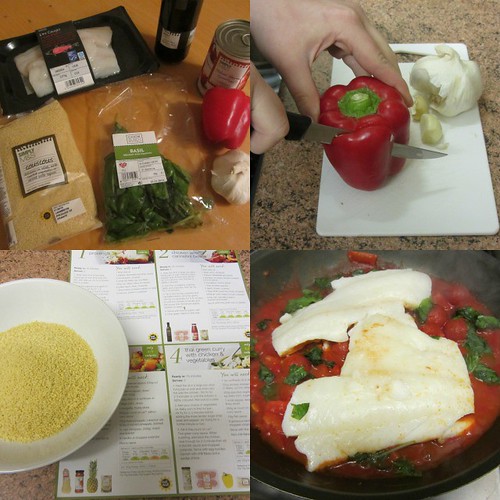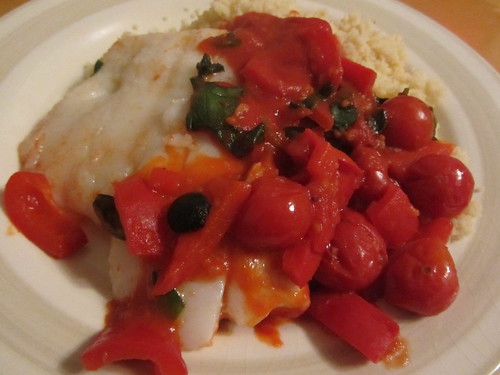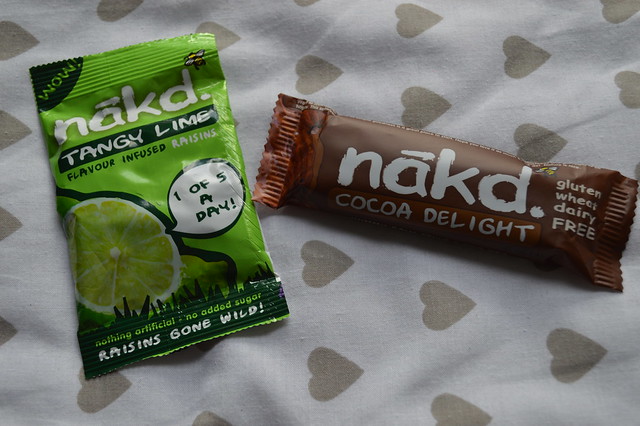When you suffer from an addiction which threatens your health, and you're lucky enough to be offered support, it is encouraged, that you cut out whatever it is you're addicted to.
It's very straight forward.
An alcoholic is told to stop drinking. They are discouraged from visiting anywhere which might sell or promote the consumption of alcohol, at least until they are well enough to be in those kinda social environments. This can take months, or years. Sometimes they may never feel strong enough to visit a bar an order a lime soda, whilst their friends sip pints. And that can be ok, because there are other more suitable venues which might be safer for them, a coffee shop, or a cafe for example.
A drug abuser is offered medicine to help ease them down from their addiction. They too are encouraged to avoid situations which might lead to substance use, or trigger a re-lapse.
A person looking to pack in the fags is encouraged to explore a wide variety of smoking alternatives. Patches, gums, e-cigarettes. All available from the NHS, or the high street.
There are hospitals and rehab centres across the country which work to protect and support patients dealing with addiction. Here, they are offered psychological support to treat the mental illness which goes with addiction. They are given advice about making positive lifestyle choices,and physical support as their bodies learn to deal with the change which comes from cutting out a once dependable substance.
Most work on the common evidence, that it takes 21 days to break a habit.
Which is what made overcoming Bulimia, that bit more difficult for me.
For 6 years I was addicted to the binge, purge cycle. A common by-product of Bulimia.
I should note, I am not directly comparing an eating disorder to the enslavement of substance abuse, nor am I belittling the struggles of overcoming a life threatening addiction.
But what makes eating disorders more difficult to treat, is that when other addicts are given support to help cut our their addiction. Bulimics are offered support to get better, but told to continue eating, 3 times a day.
Your body doesn't need alcohol or cigarettes to survive. But you must eat. Which is why, when I was incapable of doing so properly, I felt like such a failure. There was no way I could eat 3 meals a day and keep them down. Everything was done in excess. I couldn't imagine eating a bowl of cereal, without having a second, or third. I could never fathom eating a sandwich for lunch, without finishing the loaf. Come dinner time, I would be so hungry from already having purged twice, that I would overeat to compensate, and so the cycle began. I had no control over my eating habits.
During the height of my illness, I felt more vulnerable and pathetic every day. I punished myself for feeling like this by continuing the binge, purge cycle. I was furious at myself. Why could I not do what newborn children do instinctively? Was I more incapable than an infant?
It was the punishment more than anything which kept me trapped in the cycle. That and the secrecy. I thrived (or what I thought thriving to be at the time) on the knowledge that I knew something no one else did, that I had a huge secret that nobody but me and my thoughts knew about. Power and control are commonly associated with eating disorders, and it was the lack of control around me which propelled me to want to control my Bulimia. Schedule, and routine where essential and helped me to feel organised and gave me a structure which I felt to be lacking in my everyday life.
The illness started when I was at college and joined me through most of University, I acknowledge now that it was the struggle to adapt to change, which laid the foundations of the disease. Exhausted from a constant emptiness and midnight binge, purge cycles, I skipped classes and on the rare occasions I did attend lectures, I was so busy thinking about my next binge that I never really felt present. It threatened to ruin my academic career, something which I will regret for the rest of my life.
Before the Bulimia I adored dressing myself. I took so much pride in my appearance. I explored the history of textiles, I scoured the art world for new outfit inspirations, rummaged through antique stalls for the finest jewels.
As a bulimic I wore black. Everyday. Nothing but. Occasionally a dark grey, but only on a good day. I draped myself in layers of cotton, linen and wool. nothing that would cling to me. Nothing which would even hint at my original form, or god forbid, my stomach. My stomach which was always so bloated from constantly throwing up. I had no social life to speak of - surrounded by the most fabulous friends and family, and I was folding into myself, unable to hold a conversation without my mind wondering off onto the subject of food. I would stand in front of the mirror for hours to find the latest flaw, it was my favourite past time.
I remember running my hands across my ribs as I sucked in my stomach, wishing I could stay this way, but I was only ever 'perfect' for as long as I could hold my breath for. As I exhaled out, my frame would returned to it's shabby self, so too did my bloated, round belly, stuffed above the perfect bones I knew were underneath.
My nails could never be long, or they'd catch on my throat and I'd be coughing up bloody and nursing an already sore throat.
There was a constant imprint of my top teeth on the upside of my hand. A perfect copy. The scars of which are still faintly outlined on my knuckles.
My teeth, my teeth I'm still paying the price for. They're ruined. I'm so embarrassed to write that I've already lost 1 tooth because of it. Thankfully it's near the back.
Quite often blood vessels would burst in my eyes, which looked rank, obviously. They were always bloodshot and I struggled to keep them open.
My skin was always dry and cracked, especially around my mouth.
My heart used to beat like crazy, and it scared me to death. At night I was so dizzy that I never knew if I was passing out, fainting, or falling asleep.
The dehydration meant my face and neck were constantly swollen and puffy, as were my ankles, feet and hands. Everything was swollen. Which made me think I was fatter, which made me need to throw up, which meant the cycle continued.
Physically, it was the worst my body had ever looked.
But it's not the physical alterations which I remember as being most life ruining, but rather the mental side effects, which accompanied the disease.
The depression mostly. The insomnia which was caused by the sugars in the food I binged on. (As sugar is consumed quickly through the gums, you could never get rid of it by being sick. After a binge your body is empty of food, but full of sugar which is what makes diabetes so common in bulimia sufferers) The paranoia, the fear that someone would catch me, the embarrassment I felt when leaving the bathroom. And the punishment. Never feeling deserving of anything. Health, wellness, affection, intimacy, coherence, confidence. Which was great, because as a Bulimic I was never able to have those feelings.
I was engrossed by this. I calculated that 80% of my time awake was spend thinking about food, how to get it, and how to get rid of it. There was no room for anything else.
I was suffering a gut wrenching mental illness, which felt incurable. When someone breaks their leg you can wrap it up, give them antibiotics, and wait for the body to heal itself. A mental illness feels all consuming. You have the one tool capable of fixing yourself constantly to hand. Your brain. But it feels broken. There's a voice in there which tells you not to help yourself, persuades you into believing that you honestly couldn't help yourself. That you're not worthy of help. Learning to control these thoughts, is what makes the recovery of a mental illness so difficult. My secret was controlled by these thoughts.
But eventually, like all secrets, I was found out. My friend, my hero, walked me to my doctor, sat me down, held me hand, and told me to tell her everything.
Turns out she'd known for a while.
When I told my mother, she said. 'Do you feel better already, by saying it out loud? By acknowledging that it exists inside you?'
And I did. I absolutely did. I suddenly felt like I'd stepped out of the darkness, that I was already on the road to recovery.
Just saying it, I am a Bulimic, and I need help. Felt like I was helping myself already.
Talking to my family and friends made it easier for me to see how serious of an issue it was and with the incredible help support of my loved ones and my local GP, I was offered counselling and therapy to help me overcome my illness.
Recovery really started to feel more and more like an option for me during one on one sessions with my ABA (Anorexics and Bulimics anonymous) Councillor. Talking positively about the illness, sort of slowly started to push out the negative. Talking really gave me the tools I needed to fix myself. She and I would meet for a coffee, and chat and walk for hours. She was an incredible woman whose story helped me feel less alone. I still walk everyday because I know just how beneficial it is for my mental health.
I don't know if I'll ever be able to call myself a recovered Bulimic. I don't know if anyone could. It's the type of disease which stays with your whole life I imagine, because you still have to eat, 3 times a day.
But since beginning my journey, I've fallen back in love with food, with dressing, but more importantly, I've finally fallen back in love with myself. I feel like I've been reconnected with an old friend, which is great news for me, because I am fuckin, fab as hell.
It was never my intention to write such a personal blog here, but writing anonymously has given me the confidence to lay myself out, and writing it down feels a bit like counselling. I'm so proud to say that today, I feel physically and mentally as healthy as I ever have. And I eat, well, 3 times a day.
If even one person reads this, and feels ready to ask for help, then I want them to know you're not alone. If you're ready to take the step, then please, Go see your GP, they will help point you in the direction of local meetings and help set you up with a councillor. Or head over to b-eat to check out what help and support is available for you.
Or email me. If you need someone to phone when you're struggling in the supermarket, or you just wannna grab a coffee and take a walk. Then please, drop me an email : welshgirlprobs@gmail.com
How you can get involved with EDAW
There are ways
you can get involved too by helping to raise awareness of eating
disorders:
- Share your own experience – contact your local media or give a talk in your community (or even post something like this!)
- Keep up to date on Facebook by liking the b-eat page – www.facebook.com/beating.eating.disorders and follow them on Twitter @beatED.















